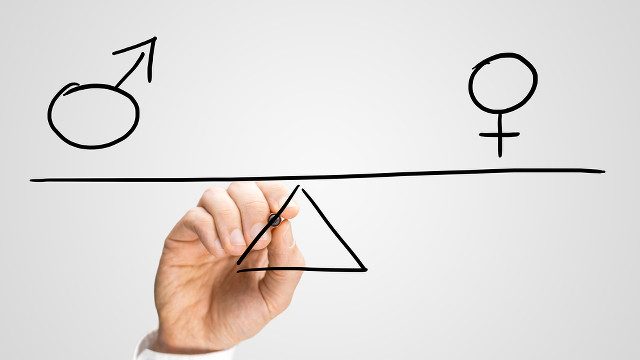SUMMARY
This is AI generated summarization, which may have errors. For context, always refer to the full article.

MANILA, Philippines – The fight for gender equality hit a bad year in 2016 as the global gender gap widened for the first time in a decade, said a report by the World Economic Forum (WEF).
Based on the Global Gender Gap 2017 report released Thursday, November 2, the global performance decreased from 68.3% last year to 68% this year. This is the only time the overall index dropped since WEF launched the report in 2006.
The annual report measures how much countries have been able to close the gender gap based on 4 indicators: educational attainment, health and survival, economic opportunity, and political empowerment.
“Behind the decline is a widening of the gender gap across all 4 of the report’s pillars,” explained the report.
It, however, noted that the areas of concern are in economics and politics since they have the largest gaps and have been progressing the fastest till 2016.
Performance under the political participation index lagged at only 23%, while economic participation stood at 58%. Compare this with the stark progress of the educational and health indices at 95% and 96%, respectively.
WEF founder and executive chairman Klaus Schwab said that companies should start employing more women in the workplace to improve efforts to correct gender inequality.
“We are moving from the era of capitalism into the era of talentism. Competitiveness on a national and on a business level will be decided more than ever before by the innovative capacity of a country or a company. Those will succeed best, who understand to integrate women as an important force into their talent pool,” said Schwab.
Regional performance
Out of the 144 countries covered by the report, the top 10 countries that are deemed gender-equal are:
- Iceland
- Norway
- Finland
- Rwanda
- Sweden
- Nicaragua
- Slovenia
- Ireland
- New Zealand
- Philippines
All countries in the top 5 except for Rwanda belong to the Western Europe region, which is only 25% away from fully closing the gender gap. Northern America, home to Canada and United States, is only 28% away from a gender-equal society. Eastern Europe and Central Asia, and Latin America and the Carribean only need to boost their efforts by at least 30% to achieve parity.
East Asia and the Pacific, Sub-Saharan Africa, and South Asia have almost equal performances in 2016. It is, however, notable that the economically rich Asian countries of Japan, South Korea, and China perform poorly in pushing for gender equality.
“The region’s larger economies perform less well: with China ranking 100 and Japan and the Republic of Korea ranking 114 and 118, respectively, it is clear that there remains much economic upside from making a more pronounced effort towards gender parity,” said the report.
The Middle East and North Africa region have a lot of catching up to do.
“The region is home to four of the world’s five lowest-ranking countries on Political Empowerment – Kuwait (129), Lebanon (137), Qatar (130) and Yemen (144),” the report said.
WEF estimates that it will take another century before the world reaches a gender-equal status. – Rappler.com
Add a comment
How does this make you feel?
There are no comments yet. Add your comment to start the conversation.